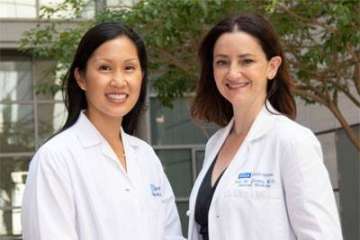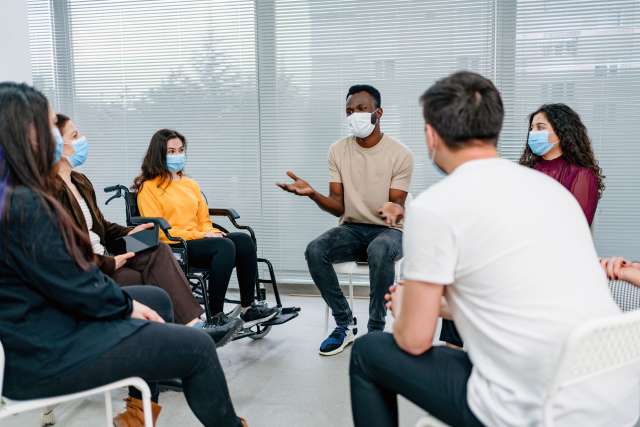Dear Doctors: My father is being treated for colon cancer. It was caught early, and his doctor is optimistic. The problem is, he’s getting really depressed. His doctor suggested a cancer support group. How do those work? Are they helpful? My dad isn’t very chatty and would need to be persuaded.
Dear Reader: Most of us are aware of the physical effects of cancer and cancer treatment, such as pain, exhaustion, nausea and hair loss. But the disease can take a steep mental and emotional toll, as well.
People who learn they have cancer often feel shock, anger, fear, sorrow and disbelief. Studies show that living with a serious disease can also leave someone with a profound sense of isolation. It arises because, in that moment of diagnosis, they have suddenly become different from everyone around them. With an urgent new schedule of doctor and clinic and hospital visits, they are separated from the familiar and reassuring rhythms of daily life. It’s a burden that, when added to the physical rigors of illness and treatment, often leads to the depression you’ve recognized in your father.
Cancer support groups are gatherings of fellow patients who, in sharing their thoughts, feelings and experiences, help each other cope. Many cancer patients say they find attending a support group helps them to deal with the numerous stresses of living with the disease. When talking to another person dealing with cancer, you don’t have to explain yourself. They already know what you’re going through. The daily physical, mental and emotional battles that are unique to cancer patients are common ground.
These groups are useful not only for emotional support, but also as a place to discuss the nuts and bolts of living with this disease. Patients help each other learn what to expect at each stage of treatment, how best to deal with doctors, how to manage side effects, strategies to stay strong and healthy, what foods to eat and where to find additional support services. Even something as seemingly inconsequential as advice on the best place to park can make daily life easier.

Your father doesn’t have to be a chatty person to take part in a support group. Participation, while welcome, isn’t required. The groups take place in person and also online. Some are for anyone with any type of cancer. Others are more specific, with a focus on a certain type of cancer or a certain age group. If your dad is open to exploring support groups, it would be a good idea to research what is available in your area. His medical team, and the clinics or hospital involved in his treatment, are a good resource. So is the National Cancer Institute’s data base. You can reach it by typing supportorgs.cancer.gov/home.aspx into your web browser.
If there are several options in your area, your dad can try them out to find the best fit. People often initially focus on how they may benefit from taking part in a support group. However, over time, they often find that helping others in their same situation is equally rewarding.
(Send your questions to askthedoctors@mednet.ucla.edu, or write: Ask the Doctors, c/o UCLA Health Sciences Media Relations, 10960 Wilshire Blvd., Suite 1955, Los Angeles, CA, 90024. Owing to the volume of mail, personal replies cannot be provided.)





